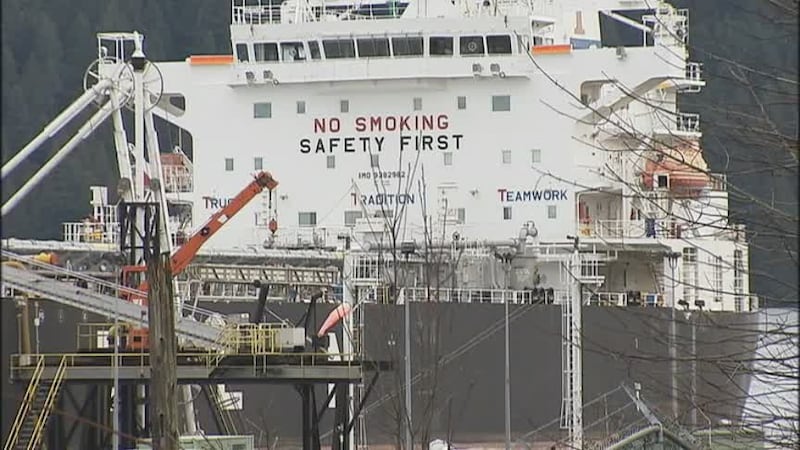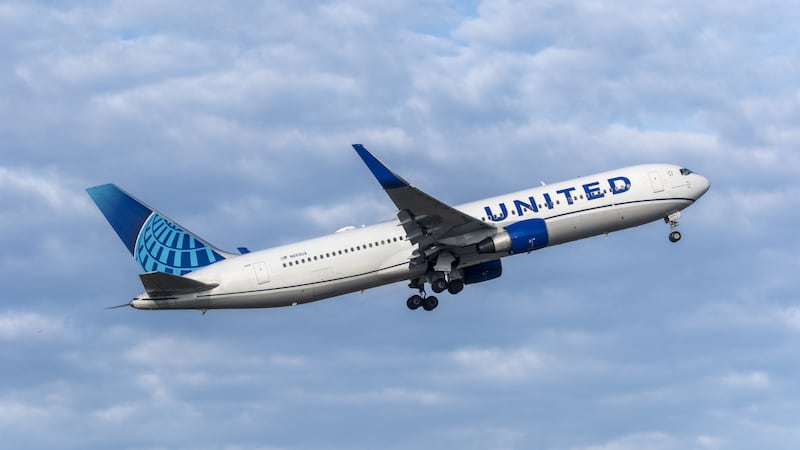Thousands of protesters will demonstrate this weekend in Vancouver against a controversial pipeline planned to extend across British Columbia with possible impacts on northwest waters.
Kinder Morgan's Trans Mountain pipeline starts 715 miles inland, across the Canadian Rockies, in Edmonton, Alberta. Increasingly, it carries heavy tar sands crude. Kinder Morgan's $6 billion expansion would mean more tankers leaving Vancouver, and traveling past the San Juan Islands and out the Strait of Juan de Fuca.
Kinder Morgan believes that the project can operate safely and provide a significant benefit to Canadians, but that claim is in serious dispute.
Why supporters want a pipeline
When Canadian Prime Minister Justin Trudeau approved the pipeline in 2016, he said that it would triple Canadian's capacity to get energy resources to international markets beyond the United States
Scroll down to continue reading.
More news from KIRO 7
- Police say 3 killed in violent crash caused by DUI suspect
- Woman jailed for Facebook post criticizing ex-husband, a deputy sheriff in Georgia
- Marysville mom will be deported, separated from three daughters
- With family returning to Mexico, man wants northwest judge to deport him
- Bremerton woman fights off man trying to steal truck with child inside
"We took this decision today because we believe it is in the best interests of Canada," he said.
Alberta, which has the world's third-largest oil reserves, needs infrastructure in place to export its growing oil sands production. Approving the Trans Mountain expansion project helps diversify Canada's oil exports. Ninety-seven percent of Canadian oil exports now go to the U.S.
"We are getting a chance to sell to China and other new markets at better prices," Alberta Premier Rachel Notley said when the pipeline was approved. "And we're getting a chance to reduce our dependence on one market and therefore be more economically independent."
Houston-based Kinder Morgan's Trans Mountain pipeline expansion to Vancouver Harbour in Burnaby will increase the capacity of an existing pipeline from 300,000 to 890,000 barrels per day.
Opposition to the pipeline
Since Trudeau's approval, there has been opposition in British Columbia, the birthplace of the Greenpeace environmental movement.
The pipeline is fiercely opposed by First Nations and environmental groups worried about oil spills.
Coast Salish spiritual leaders and members said that 9,000 people will have signed up for a march this Saturday morning in Vancouver, Canada. Environmental activists in Washington also oppose the pipeline.
Activists have protested before over the prospect of a pipeline. They are largely focused on the risks of oil trains.
KIRO 7 News reported on an oil spill risk assessment by George Washington University in 2016.
The study focused on additional marine traffic from an expansion of the Trans Mountain Pipeline and two other projects.
The study found an increased oil spill risk of 68 percent throughout Northern Puget Sound and the Strait of Juan de Fuca. In Haro Strait and Boundary Pass, the study predicted a risk increase of 375 percent. The route is prime feeding grounds for endangered killer whales.
Is Canada ready for oil spills?
Kinder Morgan maintains it is ready for any oil spill.
It contracts with Western Canada Marine Response Corporation, which cleans up spills.
Kinder Morgan executives said that if the pipeline expansion is approved, the company will spend $100 million on more spill response. It contracts with Western Canada Marine Response Corporation, which cleans up spills. The map below shows a red zone, which is of priority in cleaning up a spill.
couple of years ago, KIRO 7 asked Senator Maria Cantwell (D-Washington) if the Canadians are sufficiently prepared to handle oil spills.
Her answer: "No."
Cantwell said the problem is the type of oil coming from the tar sands, a heavy crude called diluted bitumen.
"This is not the Exxon Valdez [oil spill of 1989]," Cantwell said. "It's worse because the product will sink."
If a spill moved into U.S. waters, U.S. Coast Guard told KIRO 7 that it has the option of federalizing the spill, allowing the federal government to pay for resources out of the Oil Spill Liability Trust Fund. The National Pollution Funds Center would then seek to recover the cost of cleanup from the party responsible for the spill.
More news from KIRO 7
- Police say 3 killed in violent crash caused by DUI suspect
- Woman jailed for Facebook post criticizing ex-husband, a deputy sheriff in Georgia
- Marysville mom will be deported, separated from three daughters
- With family returning to Mexico, man wants northwest judge to deport him
- Bremerton woman fights off man trying to steal truck with child inside
Cox Media Group







